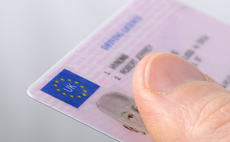But government should still be allowed to collect bulk data to protect citizens, says David Anderson QC
UK government agencies and intelligence services should be allowed to continue the bulk collection of citizens' data, but use of "intrusive power" must be demonstrated to be absolutely necessary an...
To continue reading this article...
Join Computing
- Unlimited access to real-time news, analysis and opinion from the technology industry
- Receive important and breaking news in our daily newsletter
- Be the first to hear about our events and awards programmes
- Join live member only interviews with IT leaders at the ‘IT Lounge’; your chance to ask your burning tech questions and have them answered
- Access to the Computing Delta hub providing market intelligence and research
- Receive our members-only newsletter with exclusive opinion pieces from senior IT Leaders






















